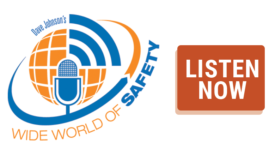Workplace Health
Best Practices
Is the manufacturing sector prepared for rising heat?
WBGT meters and understanding how to determine risk
September 20, 2023
AIHA declares September Worker Health and Safety Month
AIHA will emphasize a specific worker health and safety theme every week throughout September
September 1, 2023
Best Practices
How much is a human life worth?
An analysis of the ‘value of a statistical life’
August 18, 2023
Get our new eMagazine delivered to your inbox every month.
Stay in the know on the latest safety trends.
SUBSCRIBE TODAYCopyright ©2024. All Rights Reserved BNP Media.
Design, CMS, Hosting & Web Development :: ePublishing












